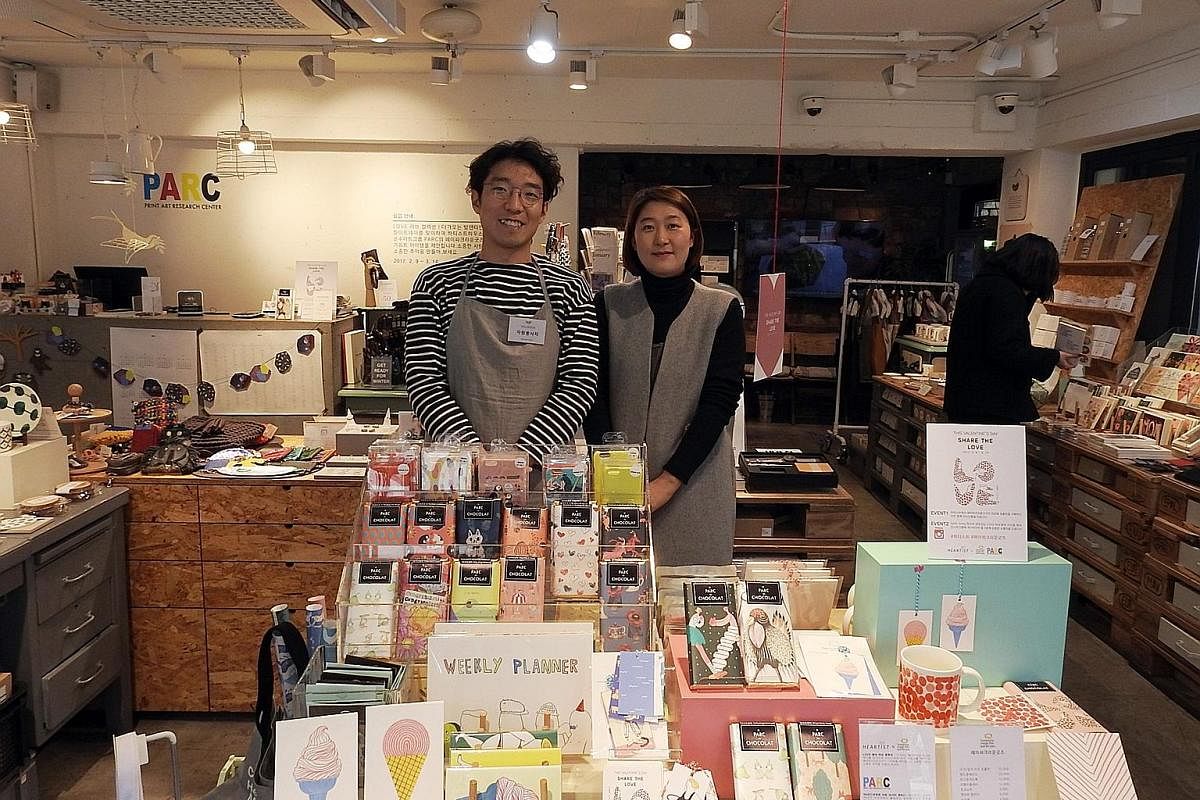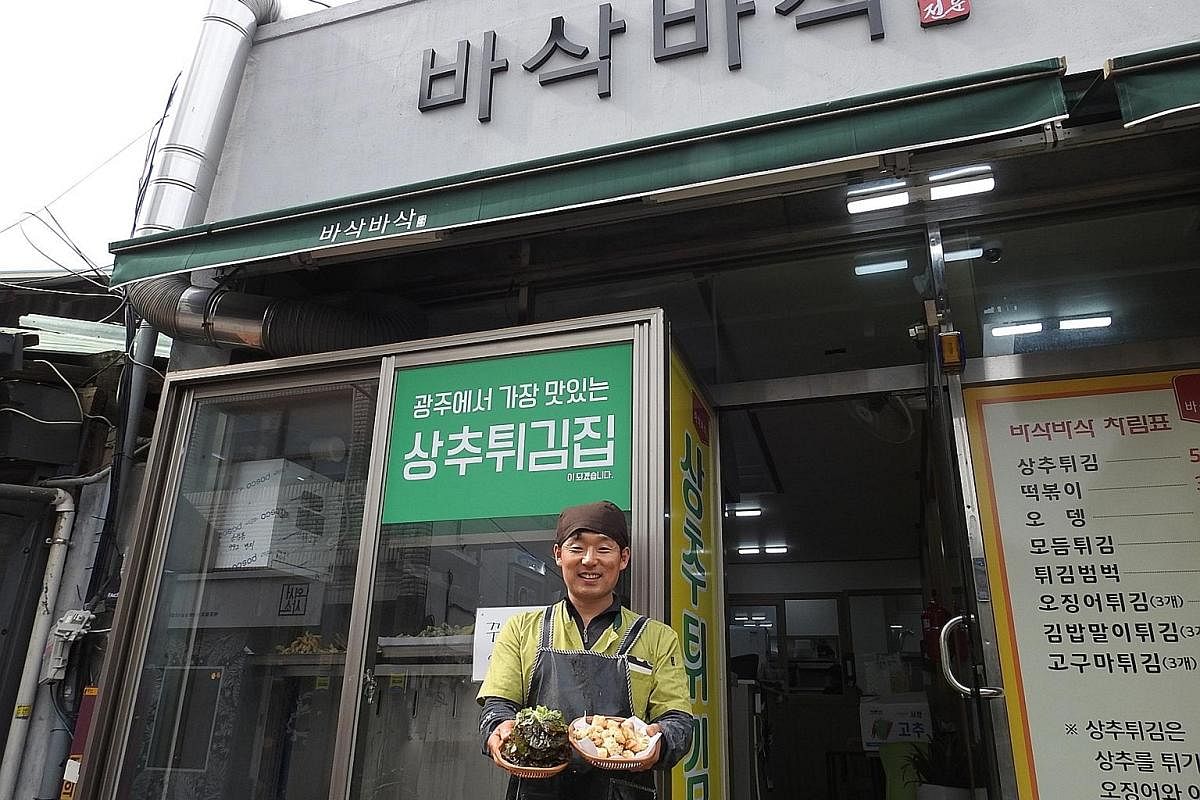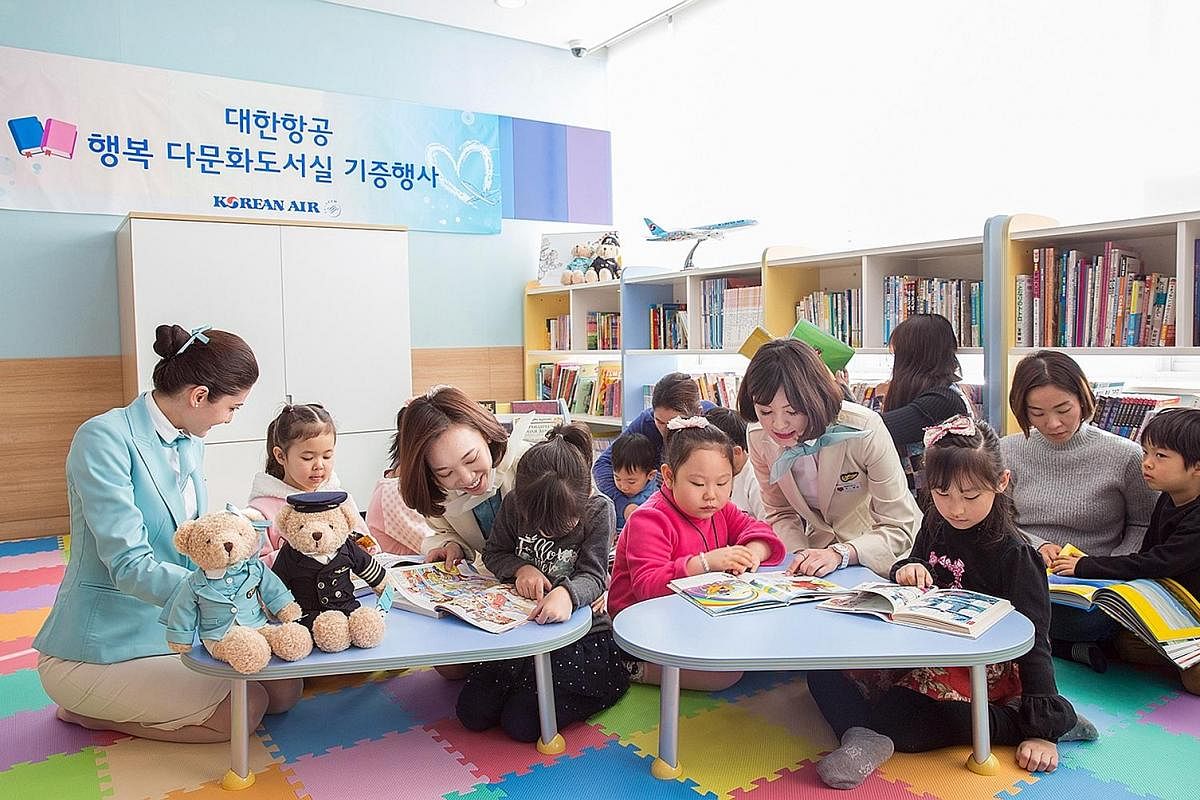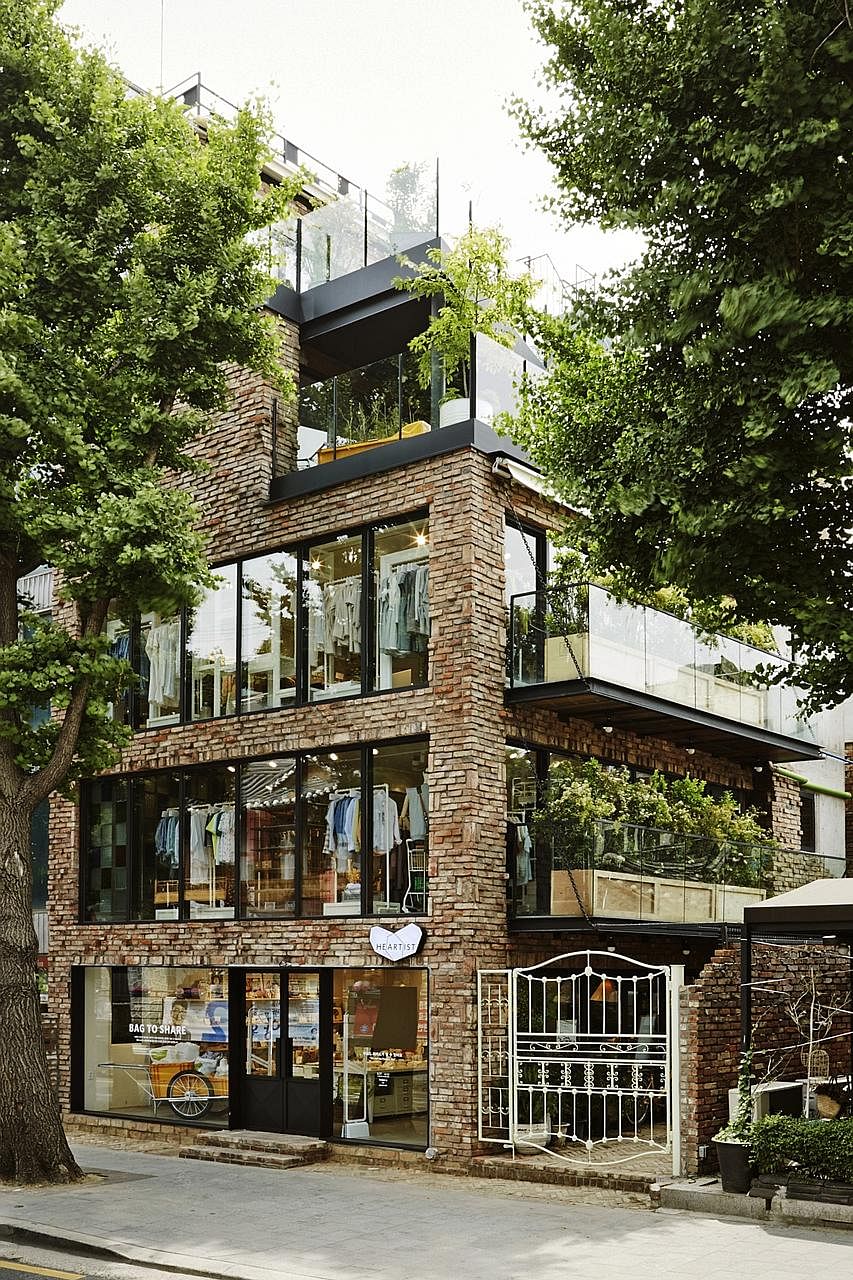Field notes
Social projects catch on in South Korea
No longer content with bankrolling good causes, chaebols are creating projects to complement brands



Singaporean banking officer Susan Moh, 44, has a necklace made of gold threads and white lace which always gets her friends talking.
She bought it during a vacation in Seoul last year from a non-profit clothing and lifestyle store called Heartist House.
"The price is on the high side but I don't feel the pinch as I think my purchase is for a good cause," said Ms Moh, who was there with her sister. Her sister had read about the shop online.
Heartist House is a corporate social responsibility (CSR) project by South Korean conglomerate Samsung Group's fashion arm, Samsung C&T Fashion. Opened in September 2014 to mark the subsidiary's 60th anniversary, it sells clothing donated by Samsung's own fashion labels, like Bean Pole and Rogatis, and bags and accessories by young designers. It donates most of its proceeds to charity.

In Asia's fourth-largest economy, conglomerates, known as chaebols, are no longer content with bankrolling good causes; they are also creating projects to complement their brands.
Chaebols are also spending more on charitable causes. A total of 255 companies spent 2.92 trillion won (S$3.6 billion) on CSR projects in 2015, up from 2.71 trillion won in 2014, according to a report by the Federation of Korean Industries (FKI). About 30 per cent of the funds went into helping the underprivileged and the rest was devoted to academic research, disaster relief and environmental conservation, among other things.
Today's CSR is more about "individuality", said the FKI report. Instead of volunteering or making corporate donations, there is now a greater focus on utilising a company's business strengths to give back to society.
The FKI did not give figures on the number of such projects, but they include Hankook Tire starting a driving school targeting female drivers, Samsung Construction and Trading Corporation's junior construction academy for low-income students and restaurant chain CJ Foodville's baking school.
It is not clear when the trend started, but Samsung's Heartist House, located in a five-storey building in the trendy Samcheong-dong area, touts itself as a trend setter.
When it opened in 2014, with the motto "turning shopping into giving", a spokesman said: "Heartist House will bring... a fresh direction not only to the fashion community but also to Korea's CSR scene."
The idea came from Samsung C&T Fashion president Lee Seo Hyun, who is the daughter of Samsung Group chairman Lee Kun Hee.
The company's public relations manager, Ms Jeny Vu told The Straits Times: "She wanted a fashion CSR platform where there is a space to share with warm-hearted artists, customers and beneficiaries. We set up a task force and made it happen ."
Heartist - a name which combines the words "heart" and "artist" - gathers clothing donated by various labels and sells it at discounted prices. It also displays the work of young fashion designers and collaborates with them to turn unused fabrics and materials into goods like bookmarks and card holders.
The eco-friendly store, which collects rain water to nourish two mini gardens, draws about 300 to 500 visitors a day, with up to 65 per cent of them foreigners, said Ms Vu.
She added that Samsung C&T Fashion spends several hundred million won for charity each year.
Office manager Jung Jae Sung, in his 40s, visits the shop two to three times a month. "I can buy good-quality products at reasonable prices here, and the money goes to charity. It's a really good concept."
Meanwhile, in Gwangju, a city south of Seoul, a 104-year-old traditional market is enjoying a new lease of life with help from Hyundai Card, a credit card company under Hyundai Motor Group.
The 1913 Songjeong Station Market reopened last April, after a facelift by Hyundai Card as a CSR project. Old exteriors were preserved, but new signboards were made and shopfronts redesigned.
Hyundai Card, known as a marketing powerhouse, also mentored young entrepreneurs to set up 17 new stores, selling food items like bread, bagel and noodles from around the world.
"Hyundai Card respects the history and story of the local market... and focused on communicating with the merchants to support sustainable businesses," said a spokesman.
With 55 stalls fully occupied, the market draws about 3,000 visitors a day - up from just 200 before revitalisation. And a night market which springs up over weekends is packed with visitors from other cities.
Mr Seo Seong Youl, 45, has been running a stall selling sangchu twigim (fried squid wrapped in lettuce), a dish unique to Gwangju, at the market since October. Previously, his stall was located 70m away from the market. He now sells up to 200 servings of the dish over the weekends. "My earnings have increased by 50 per cent," he said.
Mr Kim In Seob, head of the market's merchants' association, was initially sceptical about the revitalisation. But he is now happy - sales have more than doubled at his shop, which sells misugaru (mixed grain powder), sesame oil and oranda (wheat crackers). "This market used to be a dull place, but now, after revitalisation, it has become a tourist attraction. All our merchants are trying to adapt to the young customers," he told The Straits Times.
Meanwhile, Korean Air, part of Hanjin Group, has collected 3,200 books in various languages to donate to a multicultural library in Gangseo district in western Seoul , It targets foreign-born spouses of Korean citizens and their children.
The CSR project is in line with the airline's happiness theme - to "share happiness with the local community", said Korean Air.
Since its revamp last December, the library has seen a marked increase in visitors - up to 100 on days when they hold a Korean language class. Said a spokesman: "children's books from different countries are very popular since those are not easy to find in Korea."
Besides a trend in more customised CSR efforts, more company staff are also doing their part for a good cause. An FKI survey showed that employees have been spending more time on CSR activities - from seven hours per person in 2006 to 17 hours each in 2015.
Business development manager Cheon Ju Seong, 32, who works at Samsung C&T Fashion, helped out at Heartist House last Friday.
"I enjoy doing this because when I explain to customers our concept, I can feel them opening up their hearts to us," he said.
Join ST's Telegram channel and get the latest breaking news delivered to you.
A version of this article appeared in the print edition of The Straits Times on February 25, 2017, with the headline Social projects catch on in South Korea. Subscribe
